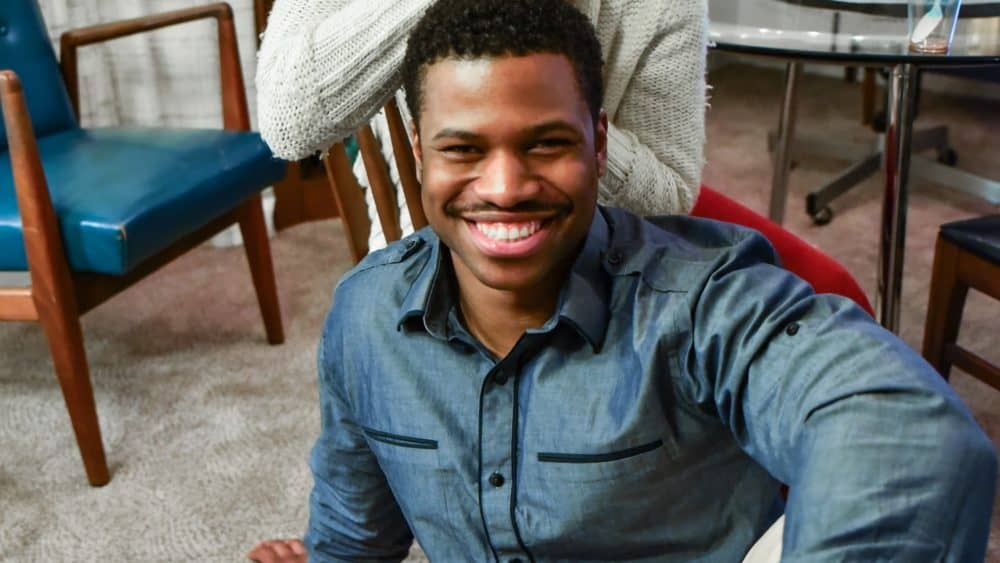[ad_1]
“I can do nothing for you but work on myself … you can do nothing for me but work on yourself!” ―Ram Dass
A few days ago, my homegirl Evita posted that quote on her Instagram. While she posted it in relation to what she deemed to be a successful mindset to bring into an individual relationship, recent events opened my eyes to the truism of that statement not just as an ideology for a single couple, but a mantra that desperately needs to be understood throughout the Black community, particularly regarding how we treat one another. It was a message that I really feel Black men need to hear in reference to how we collectively choose to treat Black women.
Last weekend, those of us who engage in and follow the actions of #BlackTwitter witnessed a vicious and viral debate over one familiar, yet unrelentingly inflammatory statement: “Men are trash.”
Soon after the remark was put out there and started to trend, the typical gender split occurred, arguments heated up and generalizations began flying left, right and center. Black authors, essayists, activists and rappers were all heavily engaged in this war of words between the “be honest about your toxic masculinity” crowd, and the “not all men” lot. It even exploded into T-shirts being offered on a website stating, “Black Women Are Trash.” As with most 140-character debates, the true losers of this battle were nuance, context and mutual respect.
For those of us who sat back and morosely observed our men and women tear each other apart online, we found ourselves facing the same troubling and daunting question we’ve been struggling with since forever: “How do we bridge the gap between Black men and women?” But what I’ve come to realize is that’s the wrong question that we as Black men should be asking ourselves.
The real question is, “How can we collectively treat our women better?”
As a man who—for the first time in his life—is taking stock of any and all semblance of his own internalized/externally expressed misogynoir, I can firmly say that I understand why women would simply say, “Men are trash.” I also understand why brothers say, “F*** THE POLICE.”
A lot of Black men don’t want to hear this and many will go out of their way to refute these claims, but we are the cause of much of the emotional, mental, physical and sexual abuse that our sisters suffer. Simply put, Black women are suffering at rates that far exceed the abuse women and men suffer in other demographic groups in America.
How can we collectively treat our women better?
Now, just to be clear—because I already can tell some dudes reading this are rolling their eyes—I do understand that men are victims, too. And no, I do not support inflamed, generalized rhetoric whether it’s about men, women or police officers. But I understand where Black women’s frustration comes from, and it’s more about the fact that Black men would rather hit the Caps Lock button to yell at women expressing frustration with their abuse than to hit the Caps Lock button to berate the men who are doing the abusing. So again, how can we collectively treat our women better? Well, the truth is in the quote at the beginning of this article.
As Black men, the worst thing we can do is ask how we as individuals can solve the Black man vs. Black woman problem, because that’s only tempting analysis paralysis. Instead, there’s a more pertinent solution we should be looking into: How can we work on ourselves, so we can be better men to the Black women in our lives?
We can start by not emotionally abandoning the Black women closest to us. Or we can start by not punishing Black girls and Black women for being molested and being victims of sexual assaults, seeing as most of these assaults occur by people close to us. Or we can start by relinquishing our desire to victim-blame Black women when they’re victimized. The habits we create among the Black women closest to us can hopefully extrapolate to how we treat Black women we don’t even know.
While this seems like nothing more than theory, this is my practical worldview. In excavating the misogynoir within me to build better lasting relationships with the Black women who surround me, I’ve learned to even extend those practices and sensitivities to Black women I don’t know. I know I can’t end the suffering of all Black women, as no one Black person can. But if I work on myself, I can not only do more to assist the Black women around me but also assist in educating some of the brothers around me so they can, hopefully, also start working on themselves. I’m not saying it’s a foolproof solution, but it’s definitely a practical start.
Lincoln Anthony Blades is the lead anchor for the All Things Being Equal Network. He can be reached HERE on Twitter and HERE on Facebook.
[ad_2]
Source link

